The author goes meds-free when the world is having a major depressive episode.
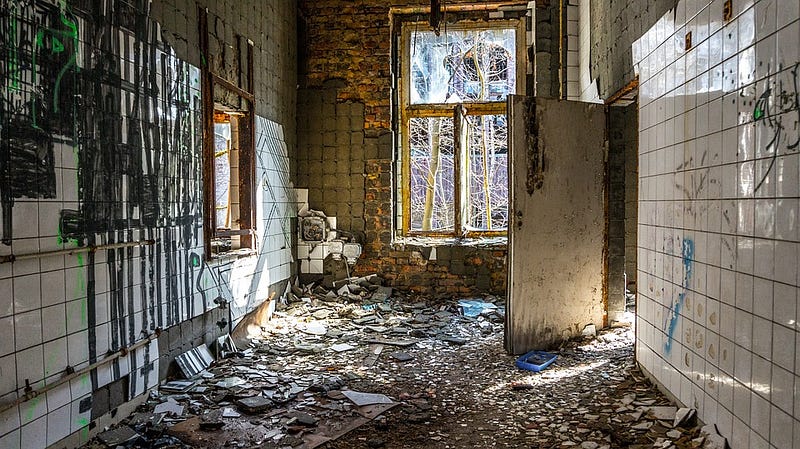
“Maybe depression is a normal response to a global pandemic. We don’t really have benchmarks for such an event. If I get down, what can I use to help me bounce back?”
*
I do not plan to cry.
I am lying on my back, watching my husband put on his pajamas. I have brushed my teeth and turned out my light.
“That was a good episode,” he says, pulling on his flannel PJ pants. “The scene when the brother and his wife…” He trails off, chuckling.
Oh god, I think. He is laughing about a scene on the show Zoey’s Extraordinary Playlist in which Zoey’s brother admits to his wife that he has been counting — down to the hour — since the last time they had sex.
Has he been counting — down to the hour?
I do not plan to cry, but the tears fill my eyes anyway. Then they roll, wet and uncomfortable, down my face and into my ears. I take a deep breath to make myself stop but start sobbing instead. I am having a panic attack.
“Hey, hey, hey,” my husband says, climbing onto the bed and leaning over me.
“Do you…” I sputter, “do you … count … down to the hour?”
A pause while he makes the connection, then he takes me in his arms.
“Of course not.”
He keeps holding me while I sputter about being a bad wife.
I decide crying actually feels good.
When was the last time I cried?
I feel tension leaving my body with the tears and let myself keep crying for a few more minutes. I sleep better than I have since I finished taking the pills two weeks ago.
*****
I have been down the antidepressant taking-and-weaning path before. Looking back, I can identify anxiety and panic attacks in my childhood as well as times in my teens when I was depressed. However, I was not officially diagnosed with depression until I was thirty.
My first husband decided that marriage took up too much of his time.

“I’d like to be married one weekend a month,” he said.
I’m sorry,” I responded, “but it doesn’t work that way.”
Choosing work over me, he moved out, and I revised my life plan. I spent a powerhouse June single-mindedly writing the final two chapters of my dissertation, knowing they were the ticket to the next phase of my now-undefined life. With my dissertation submitted, I was at loose ends until my defense took place in September and the academic job list opened in October.
I would lie in bed for three hours before getting up, sit on the kitchen floor staring into space, leave tearful messages on friends’ answering machines. I started teaching the first day of the fall semester without a syllabus. Worried, my neighbors Chris and Matt took me along when they visited their parents for the weekend. Even my estranged husband, who otherwise seemed to get a perverse pleasure from the pain he was inflicting, spent one night at our old apartment watching me, worried that I might walk into Lake Michigan à la Virginia Woolf if he left me alone.
My therapist wanted to prescribe Ambien and Zoloft, but I resisted. Growing up, I learned that you didn’t turn to medicine for mental issues. Medication equaled avoiding the problem. My mother’s philosophy when she was down was that she just “needed to give herself a good talking to.”
“Taking medicine does not mean you are avoiding the problem,” the therapist argued. “The medicine is a tool that will make you strong enough to fight the problem.”
She was right.
Ambien provided me with full nights of sleep. Zoloft helped me regain my equilibrium. I stopped eating Oreos for dinner. I found enough energy to exercise, joining a gym with my friend Martha. I interviewed for jobs and received a tenure-track offer. On the day my divorce was finalized, my newly-ex-husband was the one crying, not me.
“Taking medicine does not mean you are avoiding the problem,” the therapist argued. “The medicine is a tool that will make you strong enough to fight the problem.”
Over the past twenty years, I have cycled on and off various antidepressants. Significant life events have triggered depression: the end of my first marriage, the death of my mother, my mother-in-law’s dementia diagnosis. After a stretch on the pills, however, I either don’t need them anymore or they cause problems: a muddy head, excessive tiredness. And so I go medication-free until the next round.
In the past, however, the waxing and waning of my depression have been purely personal. This time, I am giving up my antidepressants when the entire world, quite literally, is in the middle of a major depressive episode. If I get glum, I wonder, will it be a return of the depression or a normal response to the crazy events occurring around me? Maybe depression is a normal response to a global pandemic. We don’t really have benchmarks for such an event. If I get down, what can I use to help me bounce back?
*****
“Deep breath. Do not think. Deep breath. Do not think.”
My eyes snap open.
.
Light. After 6:00 then.
I roll over and squint at my alarm clock. 7:02. Which means it’s actually 6:51.
I now wake up every morning at this time. Every. Morning. And I wake with a start. No gradual fluttering into consciousness. No luxurious stretches. Just that snap into wakefulness.
Why? I think, rolling onto my back. I don’t have to be out of bed until 8:00. My commute has become twelve seconds.
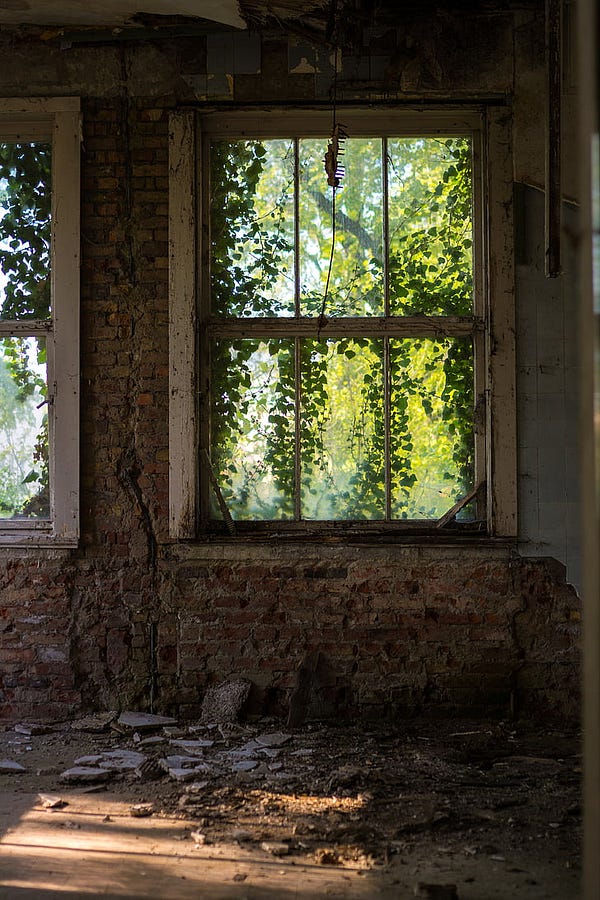
I roll back onto my side and pull the covers to my chin. I squeeze my eyes shut and pretend that my mind is not already racing.
Deep breath. Do not think. Deep breath. Do not think.
It’s too late. The monkey in my brain is already chattering. Email Yvonne today, it says. How many emails will be in the inbox? Should you grade or prep first? What has to get done before Zoom class starts? Can we last until Friday before going to the grocery store? Who is in the rhino costume on The Masked Singer? Your chest feels tight. Is it COVID or asthma?
I sigh and climb out of bed. The monkey was there when I took antidepressants, but it was easier to hush. Now the damn monkey (I picture a capuchin swinging gleefully from my hypothalamus) is inexorable.
I think wistfully of January and February, when I was still taking the antidepressant. Every morning the blare of my alarm clock woke me. I hit the snooze button one, two, three times. I took naps before dinner and went to bed at ten. On Saturday mornings I slept until at least nine. I slept ten hours a night but needed a nap after teaching for two hours. I was sluggish, always ready to sleep. The sleep felt decadent but not normal.
Was that exhaustion better than this wakefulness? I cannot decide.
*****
At the end of March, a Kaiser Family Foundation poll reported that 45 percent of adults said the pandemic had impacted their mental health with 19 percent of adults disclosing a “major impact.” Sleeplessness, stress, anxiety, depression: all on the rise. Experts warn that we are not ready for the mental health crisis that awaits us at the as-yet-unknown end of the pandemic.
Psychological health is not privileged in our already broken health care system. Prescription of mental-health medications is often done by primary care physicians without a clear diagnosis. Therapy is either not covered or under-covered. Same with mental-health medications. We simply do not value our psychological health, but the rapid social changes surrounding the coronavirus have upset our mental balance in several ways:
• Fear that we will get the disease. I fight this anxiety daily, even when I don’t leave the house. As a person at higher than average risk from COVID-19, I consider each trip out with care. How badly do I need to run this errand? I scrutinize each person I pass — from a distance of six feet — on my walks. Could he be an asymptomatic carrier? How hard is she breathing? Could any of their breath get over here? Every time I cough, I fear it is the first symptom. I obsessively measure two weeks since each significant (masked) encounter with strangers, relaxing because I have reached the end of the likely window for symptoms to appear.
• Fear that our loved ones will get the disease. My mother-in-law will turn eighty this year. She has dementia. My husband did not see her for more than a month. On Easter morning, we drove an hour to her house at dawn, snuck in wearing masks and carrying Lysol wipes, and left a basket with chocolate bunnies and jelly beans. I taped up a sign that said “The Easter bunny was here” while my husband and daughter hid eggs. We were in and out of the house in less than five minutes, like deranged Easter spies, because we wanted to show our love without coming into contact with her. Now he cuts her grass once a week and drives her to the speech therapist while they both wear masks. She tries to hug him, forgetting in her dementia about the pandemic.
“Experts warn that we are not ready for the mental health crisis that awaits us at the as-yet-unknown end of the pandemic.”
• Lost jobs. Unemployment skyrockets. As a tenured faculty member, I occupy a privileged position, but I watch higher education turning itself upside down. Pre-emptive budget cuts and layoffs hit institutions across the country. My husband gets a five-percent salary reduction. I wait for my own ax to fall. Furlough days? Salary cut? Retirement benefits slashed — again? I balance our checkbook and worry what another cut might mean for our family of three.
• Disruption of our routines. I order cat food online. When I arrive at the store, I call, and a masked worker puts it into my trunk. We barely speak. I have only one pair of jeans not fraying at the seams, but I won’t waltz into Old Navy and browse the boot-cut-vs.-straight-leg selections. Mail-ordering pants, however, would be a disaster, so I just keep wearing the frayed pairs. The old pants don’t matter. No one sees me.
• Trapped in the house with the family. My family spends our days online, teaching classes, taking classes. Our eyes and brains grow glassy with screen fatigue. I worry that I am not spending enough time with my teenage daughter, even as she avoids me, texting her friends on the new phone we bought just as the world shut down. She frowns and says, “Go away,” when I ask about online school, about friends.
• Isolation from friends. We join two Zoom cocktail hours. The cocktail hour with co-workers leaves me stressed. Too much sniping, and one colleague dominates the conversation. I watch the rueful faces onscreen. In person we would have subtly slipped away to another cluster of conversation across the room. Here we are trapped. The Zoom hour with a couple a few blocks away goes better. We chat about the movies we’ve been watching, the food we’ve been eating, our kids’ online school adventures, our overgrown hair. We manage some good laughter.
• Lack of direction from those in charge. I don’t know what actions to take. Each state tells its citizens a different story. The president makes pronouncements that conflict with what his press officials or agencies say or even with what he said the day before. Stay in? Go out? Getting a haircut and wearing a mask become political statements. As the response from our supposed leaders grows increasingly haphazard, decision-making becomes fraught with anxiety.
No end in sight.
*****
I filter the news to protect myself. No good news anyway.
In the early stages of the pandemic, some friends tune into Governor Mike DeWine’s daily two o’clock briefing. He and his health director, Amy Acton, get top marks for their calm, science-based press conferences. A joke starts that their briefing is when daily drinking begins. You can even buy T-shirts: Wine with DeWine.
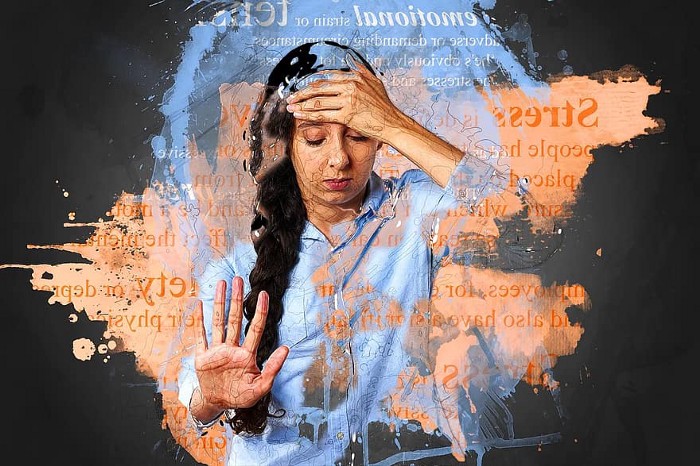
But I give up alcohol for a few weeks after I finish the pills, to see if sobriety will help me sleep. Drinking is making me jumpy. Not that I’m a big drinker, but if giving up a glass of wine calms my nerves and gives me another hour without consciousness, I am up for the sacrifice.
I refuse to watch the press conferences with the president. I hear that they last for hours, with little input from people with real knowledge. My Facebook friends find them infuriating and anxiety-provoking.
“A small voice inside my head is always on the verge of screaming.”
I don’t need any help feeling infuriated and anxious.
I skim the headlines in the newspapers, reading just enough to stay informed. The headlines read so much the same and repeat so often that the actual words are lost in the cacophony; I retain only their gist. What I glean is unnerving. A small voice inside my head is always on the verge of screaming. When it gets too loud, I make myself stop reading.
• “We cannot let the cure be worse than the problem itself.” The president tweets this line on March 22. How are lives less important than money? Why is it always about money? I know that the economy matters, but I think of the lives already lost. The grieving families. The people still on ventilators. Our president never mentions them. Deep breath. The small voice opens its mouth.
• States compete against each other for necessary medical equipment. Really?! We invade other countries on a regular basis. We can’t coordinate PPE? Whimpers and whines from the small voice.
• Coronavirus cases disproportionately higher in minority communities. I picture my Black students, my Black friends, already fighting so many battles due to racism. Why do we have to hand them another one? The small voice begins to scream.
• President threatens to withdraw World Health Organization funding. Do not even get me started. One long, shattering scream.
• U.S. COVID-19 deaths top 100,000.
My internal voice grows hoarse from the constant screams. I debate whether to restart the antidepressant. Not yet, I decide.
Instead of pills, I ingest comedy. Fantasy. Any world but the world where we are currently living. Pre-pandemic, I was not a regular TV viewer, but I start watching nightly, escaping the world through my TV screen. I return to the real world refreshed by the mental break, the laughter. My teenager reverts to the animated Barbie movies she loved when she was five. I don’t stop her; I watch them with her. In the Barbie universe, the clothes are pretty, the skies are blue, any illness is temporary. Mermaids are real and speak with semi-British accents. The best horse wins the steeplechase but also remains free to roam the Alps forever. Animals recognize the best people. The good always triumph. The false ruler is deposed, and the true princess is always crowned.
*****
You can’t just stop taking antidepressants; you have to taper off gradually. If you stop suddenly, you risk jumpstarting the very depression the pills are treating. Stopping cold-turkey also has side effects like nausea, vomiting, and dizziness. Some people can taper off antidepressants in weeks; it takes other people months, depending on the medication and the dosage.
When I told my doctor about the exhaustion, she proposed weaning me off one antidepressant and moving onto another with fewer side effects. I was leery — I’m already on several meds and am never excited about adding new ones — but I trust my doctor. She always runs late because she spends forty minutes talking to patients before she even examines them. Once she started my visit by saying, “I was just thinking about you yesterday.” I hadn’t seen her in almost a year.
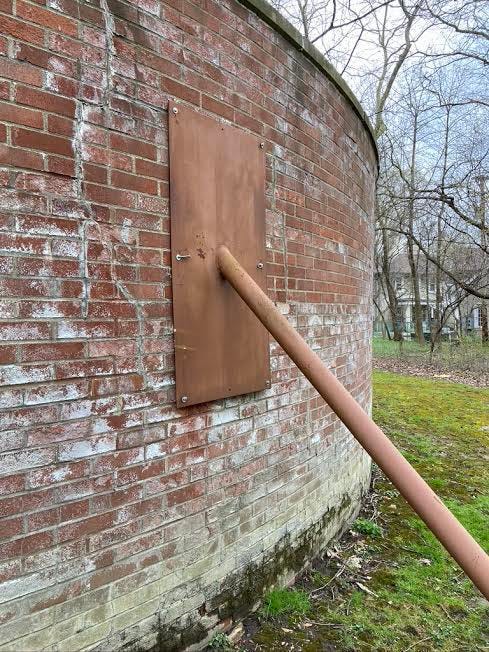
I was to take the new antidepressant while I weaned off the old drug: half a pill for a week, then a quarter-pill for a week, then a quarter-pill every other day for a week.
But then I read the warnings that came with the new pills. Do not take this medication if you take an anti-seizure medication! I take a low dose of Topamax, a common migraine and anti-seizure medication.
I emailed my doctor. Her response appeared forty-seven minutes later: “You are absolutely right. Do NOT take it.”
Then my phone rang.
“I am so glad you read the information that comes with your medication,” my doctor said. “I was wondering why I hadn’t put you on this drug earlier; this must be why I didn’t.”
Instead of a new antidepressant, I would be taking no antidepressant. I will admit that I was relieved. I know how to wean off anti-depressants.
Our conversation took place at the beginning of March, and I began lowering my dose that day. The process was not difficult. I was busy, frantically transferring my college courses to an online format. I had five days’ warning to convert in-person literature classes to Zoom and rethink four weeks’ worth of discussions and assignments. I worked all day and fell asleep quickly at night. I did not notice the diminishing dosage or a change in my mood.
The first case of COVID-19 in Ohio was confirmed on March 9.
Ohio bars and restaurants were ordered to close on March 15.
I took my last quarter pill of anti-depressant on March 23, the day the governor effectively shut down the state of Ohio.
*****
I take walks almost daily. I follow the same route. The very sameness of the path and its events are soothing. It’s about two and a half miles round trip and takes me about an hour. Sometimes my family comes with me. Often I walk alone. My shoulders usually do not relax until I reach the bridge over the spillway, about a mile in. I always greet the invasive carp: Hello, fish! Their mouths break the surface, gaping, hoping for breadcrumbs to drop from my hands.
“The water and the birds and the turtles in the lake don’t care about the pandemic or the president.”
Exercise is highly recommended as an antidote for depression. Medical sources point out that exercise releases endorphins, a brain chemical similar to cannabis that improves well-being. Exercise also distracts us from the issues that may be contributing to our depression.
As I walk, I notice new leaves on the trees. I look for turtles on the tree branches that jut from the lake. My record for turtles spotted in one walk is twenty-three. I pay attention to the crunch of the wood chips under my feet. I listen to the birds.
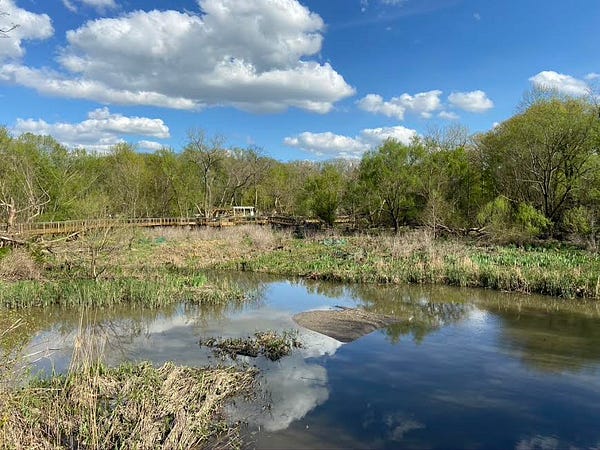
Sometimes I think about the projects and demands waiting for me at home, but here on my walk they become less overwhelming. They slip in and out of my mind with the images of the fish, the smell of the water, the sound of the wind.
I say hello to the beer guy. He sits on a cushion with a small soft-sided cooler resting on the bench to his right. In the cooler is a Great Lakes beer. He takes out the beer and puts it on the bench to his left. He rests and looks at the lake while he drinks his beer. I ask him which kind he has today. He turns the bottle to show me the label.
At the east end of the lake, I stop on the bridge and look over. I saw a mink here early in the spring, before the shutdown. I gaze out at the expanse of the lake and take a deep breath. I cross the road and look into the marsh. New plants bloom each day. I take one picture with my phone. I plan to compile a year’s worth of pictures of this spot into an video to capture the changing seasons.
Emily Dickinson’s poem about “keep[ing] the Sabbath” by “staying at Home” often runs through my head as I walk. Dickinson writes of an orchard as her church and birds as her choir. When I hear the water burbling from Lower Shaker Lake into Doan Brook, I imagine it as another piece of Dickinson’s church service. I remember that the water and the birds and the turtles in the lake don’t care about the pandemic or the president. The herons skim the lake looking for fish, bugs, and frogs; the peaceful swoop of their wide wings makes me calmer. I return home stronger than when I left.
*****
I realize that the TV shows I have been watching have strong women at their centers. Computer programmer Zoey Clarke of Zoey’s Extraordinary Playlist is promoted over an ambitious male teammate even as she faces the impending death of her beloved father — all while being privy to the inner thoughts of others, acted out in elaborate song-and-dance.
Even Barbie — at least in her movies — is a tough cookie. She may dress in pastels and focus too much on cuteness, but in Barbie: A Fairy Secret, it is Barbie who must save Ken from a forced marriage with an evil fairy princess. Barbie is a master surfer, a champion horseback rider, a friend to people and animals alike.
“So far I have managed better than I expected…. I worry that people are pretending as if nothing has happened, as if we can return to ‘normal.’ I no longer know what that word means.”
In our quarantine binge-watching, we also start The Unbreakable Kimmy Schmidt, a comedy that feels eerily prescient. Kimmy is kidnapped in the eighth grade and held for fifteen years in an underground bunker, where she eats dirt for the iron and generates her own electricity with a crank. In the pilot episode, she is rescued and restarts her life in New York City. Kimmy does not want people to know she is a “mole woman” but regularly reveals her unfamiliarity with modern life: cell phones, pop culture, adult relationships.
In the eighth episode, she reveals her identity to her employer:
“I was kept in a bunker for fifteen years by an insane preacher. I thought the world had ended. I thought I would die there. But I survived. Because that’s what women do. We eat a bag of dirt, pass it in a kiddie pool, and move on…. I do understand the world, Mrs. Voorhees. It’s tough, but so are we.”
I think back over my process of weaning off antidepressants during a pandemic: the sleeplessness, the anxiety. The new healthy habits that I am trying to build. Less alcohol. More meditation. Less news. More walking. I have bad days, days where I binge-read bad news and eat handfuls of chocolate chips straight out of the bag. But I realize that so far I have managed better than I expected.
I don’t know if I will make it to the end of this crisis without another round of antidepressants. It’s only summer. States have reopened, and people are congregating again. Cases of the virus are rising. Schools are promising to hold classes in person in the fall despite dire warning signs. I worry that people are pretending as if nothing has happened, as if we can return to “normal.” I no longer know what that word means.

In past rounds of weaning off antidepressants, after a few months I fell back into old patterns, into “normal.” I would forget to focus on my psychological health. I am pushing harder this time to rethink my mental and behavioral patterns. I am trying to tame that funky capuchin in my brain with mindfulness exercises once or even twice a day. I am writing, a process I had not tackled for almost a year before the pandemic hit. Putting words on the page — the tapping of my fingers on the keyboard — is therapeutic. I bake … a lot. Measuring and mixing is a mantra for calm. I turn off the computer at night, fighting for that elusive sense of work-life balance. This rethinking of my life is not easy, but I have to. The current situation has forced me out of all of my comfort zones.
I imagine myself as a real-life Kimmy, emerging from my home into a new world when this pandemic is over. No, I haven’t gone through the same kind of horrors that Kimmy does. She believes the world has been destroyed by nuclear weapons.
But like Kimmy, I have to relearn how to interact with others and who I want to be in this new world. I haven’t quite figured out who that person will be, but I will.
The world is tough, but so am I.
****************************************************************
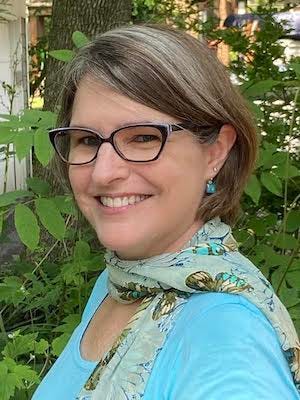
Kirsten Parkinson teaches literature, writing, film studies, and gender studies at Hiram College in Ohio. Her creative and scholarly work has appeared in Confrontation, Literature/Film Quarterly, Dickens Quarterly, and Midwestern Folklore.
*
Featured image: maxpixel.net.








